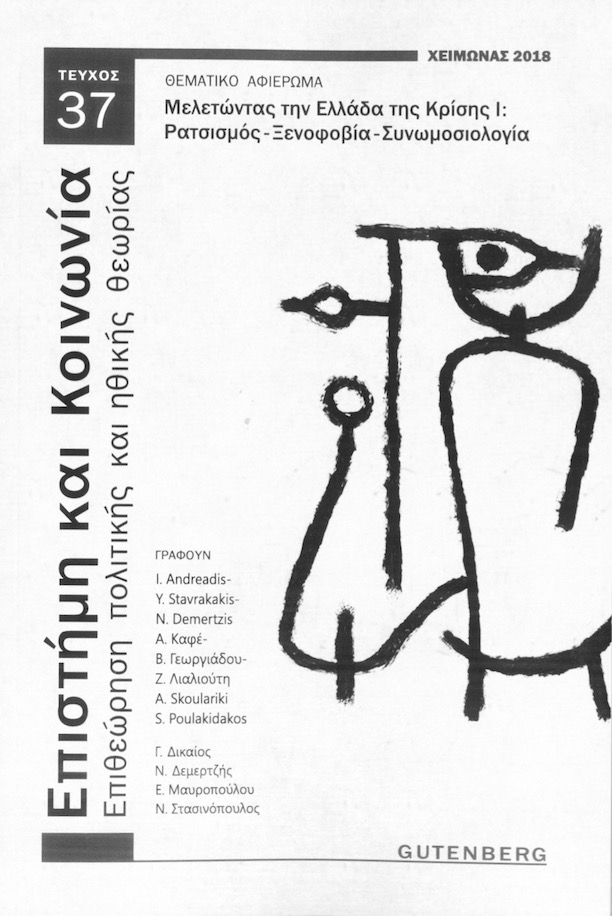Conspiracy theories before and after the Greek crisis: Discursive patterns and political use of the “enemy” theme
Abstract
Conspiracy theories have been associated to a paranoid way of thinking; however they are not always marginal and utterly irrational. Conspiracist narratives reflect rival strategies of interpretation, and can have a real impact on the social and political praxis. More than factual accuracy, I suggest that what distinguishes a conspiracy theory is a type of discourse, its key features being: suspicion, intentionality, personification, speculation and denunciation.
This paper examines conspiracy theories that dominated Greek public discourse before and after the economic crisis of the years 2010s, particularly those introduced by political actors as a means of political persuasion and mobilisation. Greek political culture and the discredit of the political system since 2010 led to frequent expressions of distrust towards political elites and foreign “powers”. My analysis focuses on the acceptability of conspiracy theories in relation with social representations, dominant stereotypes and widely shared interpretative schemata.
The following cases of conspiracy theories are discussed: a) the wildfires that ravaged large parts of Greece in 2007, supposedly set by “foreign agents”; b) the alleged assassination plot in 2008-2009 against the PM Karamanlis by Western / US secret services; c) the conspiracy theories attributing the economic crisis to a deliberate foreign plot against Greece. The paper examines in particular the attribution of blame to presumed “enemies”, in line with nationalist discursive themes and stereotypes.Article Details
- How to Cite
-
Skoulariki, A. (2018). Conspiracy theories before and after the Greek crisis: Discursive patterns and political use of the “enemy” theme. Science and Society: Journal of Political and Moral Theory, 37, 73–108. https://doi.org/10.12681/sas.14656
- Section
- Articles

This work is licensed under a Creative Commons Attribution-NonCommercial-ShareAlike 4.0 International License.
Authors who publish with this journal agree to the following terms:- Authors retain copyright and grant the journal right of first publication with the work simultaneously licensed under a Creative Commons Attribution-NonCommercial-ShareAlike License that allows others to share the work, not for commercial purposes, with an acknowledgement of the work's authorship and initial publication in this journal. If you remix, transform, or build upon the material, you must distribute your contributions under the same license as the original.
- Authors are able to enter into separate, additional contractual arrangements for the non-exclusive distribution of the journal's published version of the work (e.g., post it to an institutional repository or publish it in a book), with an acknowledgement of its initial publication in this journal.
- Authors are permitted and encouraged to post their work online (e.g., in institutional repositories or on their website) prior to and during the submission process, as it can lead to productive exchanges, as well as earlier and greater citation of published work (See The Effect of Open Access).



